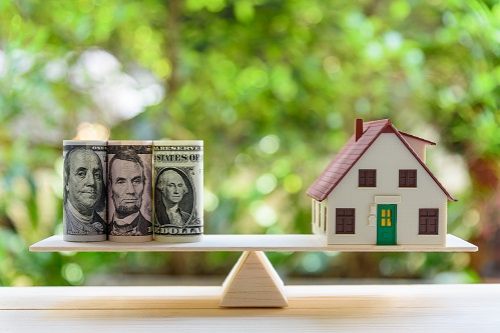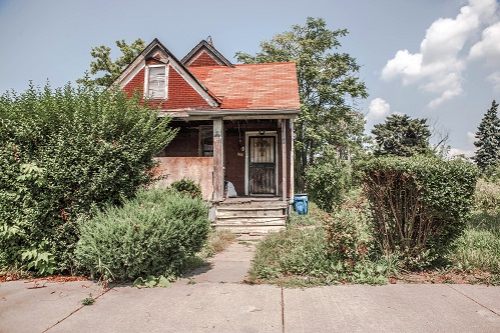What is a landlord insurance policy?
Landlord insurance is a dwelling insurance policy for a house rented to others and not owner-occupied. It provides similar coverage to a homeowners policy for the building itself, other structures and liability, but differs in terms of personal property coverage and coverage specific to the needs of landlords.
Because you don't live in the home, a landlord insurance policy typically includes less personal property coverage. However, that can be adjusted; for example, if you rent the home furnished.
It also includes coverage for loss of rent, which pays what you lose in rent if you the home is uninhabitable due to a covered loss.
If you have a rental, landlord insurance is a must. If your rental is damaged and you are carrying the wrong type of homeowners insurance, your claim may be denied, leaving you to pick up the tab on repairs.
What does landlord insurance cover?
While coverage can vary by insurers, the majority of landlord insurance policies offer the following coverage.
Dwelling: This coverage will cover damage to your home from covered perils such as wind, fire, hail, lighting and any other perils listed in the policy. It may also cover damage from vandalism and theft, but this is often an endorsement. Landlord insurance claims for the dwelling are usually covered at replacement cost.
Other structures: This covers structures on the property not attached to the house, like detached garages, sheds, barns and even fences.
Liability insurance: Just like a homeowners policy, a landlord policy provides liability and medical coverage protection. If a tenant falls and is injured on your property, this coverage will help cover their medical bills and any legal costs (up to your coverage limits) if they decide to sue. This can include the cost of your legal defense as well as any settlements or judgments that arise from the lawsuit.
Loss of rental income: If your rental is damaged by a covered peril and you are unable to rent it out, your policy should cover the lost rental income.
Landlord property: Personal property is usually limited on a rental home policy because most landlords don't keep a lot of their possessions on site. Some coverage is included, however, for the property you leave on the premises, such as a lawnmower or other outdoor equipment, appliances or tools. Landlord policies do not cover the tenant's property.
What does landlord insurance not cover?
It's important to note that most landlord policies are named perils. This means they cover damage from any of the perils specifically named in the policy, and anything that isn't named is excluded.
In addition, landlord insurance doesn't cover:
- Your tenants' personal property
- Floods or earthquakes
- Water and sewer backup
- War or terrorism
- Pest or animal damage
Read your policy to find out what exactly is excluded.
Additionally, you should know that landlord insurance doesn't cover any of your tenant's personal property.
Landlord insurance coverage options
While landlord insurance is a must on rental properties, you may want to consider these additional coverages as well:
- Flood insurance: Just like a homeowners policy, landlord policies exclude flood damage. Depending on where your rental is located, your mortgage lender may require that you carry flood insurance and if you live in a high-risk zone, you may be legally required to carry flood insurance. Flood insurance can be purchased via the National Flood Insurance Program (NFIP) or in the private market.
- Earthquake insurance: Landlord policies also exclude damage from earthquakes, so if your rental is in an earthquake prone area, you should be carrying this coverage. Earthquake coverage comes with a fairly pricey deductible, in most cases it is 5 to 25% of your total dwelling coverage. This means that if you carry $250,000 in coverage on your rental, your earthquake insurance deductible will be $25,000 if you have a 10% deductible. While this seems (and actually is) a very high deductible, it is much less than having to cover the entire bill to rebuild or repair your rental after a major earthquake.
What insurance does a landlord need?
Your landlord insurance requirements may vary depending on how often and how long you rent out your property. The best landlord insurance for your situation may vary depending on what type of landlord you are; here are three rental scenarios to consider:
- Long term rental: If you rent your house or apartment to the same person for at least six months, you should absolutely carry landlord insurance which is sometimes called a rental dwelling policy. If you primarily rent your property to long-term tenants, you must carry this coverage.
- Occasional short-term rental: If you only rent out your primary residence, occasionally and only for short periods of time you may not need a landlord policy, your homeowners policy may provide all the coverage you need. However, requirements vary by insurance company, so it is essential you check with your insurer regarding coverage before renting out your home, even for a short period of time. Some insurers may require a rider on your homeowner policy for the occasional short-term renter.
- Frequent short-term rentals: If you rent your property on a regular basis using sites such as Airbnb or VRBO, your insurer will most likely consider it a business and will deny any claims on a homeowner policy. If you rent your property on a frequent basis for short term rentals you will need a landlord policy to fully protect your property. Some insurers may allow you to add a short term rental rider to your homeowner policy, the best advice is to check with your insurer as to what they require. You can also read our guide to Airbnb insurance.
How much does landlord insurance cost?
Landlord insurance cost varies as insurers consider all types of factors when setting a premium and many of those are specific to the property. However, a landlord policy will always cost more than standard homeowners. According to the Insurance Information Institute, if you are looking for a ballpark figure, add 25% to your homeowners insurance costs.
The reason landlord insurance costs more comes down to the increased liability risks that come with tenants. Accidents happen and renters are more likely to ignore maintenance needs on the property which can lead to damage and insurance claims, all things that insurance companies find risky.
The best advice is to get a landlord insurance quote from numerous insurers to make sure you are getting the best policy and premium. The best landlord insurance companies will vary by your location, so it is always a good idea to shop multiple insurance companies before deciding on a policy. Make sure you are comparing apples to apples when it comes to coverage levels and deductibles.
How much landlord insurance do I need?
You need enough landlord insurance coverage to rebuild your home and protect your interests, If a property is mortgaged, the lender will usually require an insurance policy sufficient to cover the outstanding loan balance or rebuild the property. Coverage above that level and extra coverage options are completely up to the landlord, as landlord insurance is not legally required.
When getting a landlord insurance quote, it's wise to consult several insurance agents or companies that specialize in business insurance. They can help you choose the perfect solution for your specific rental property.
FAQ: Landlord insurance
Should I require my tenants to buy renters insurance?
It is always a good idea to require your tenants to purchase renters insurance and show you proof of the policy when they sign the lease. If necessary, you can require that they carry renters insurance in the lease and also require that they name you as an additional person on their policy.
Can I buy landlord insurance for a condo?
Yes, if you own a condo and rent it out, you can buy a landlord insurance policy. However, since you don't need coverage for the building itself, your policy will differ from a dwelling fire policy for a single-family home.
Do I need landlord insurance?
Yes. If you own a rental home, you need the proper insurance. A standard homeowners insurance policy isn't designed to protect landlords, and your insurance company may deny a claim if you were renting out a home that was insured as owner-occupied.
If you have a mortgage on the home you are renting out, you will be required by the lender to carry the correct amount of insurance.




